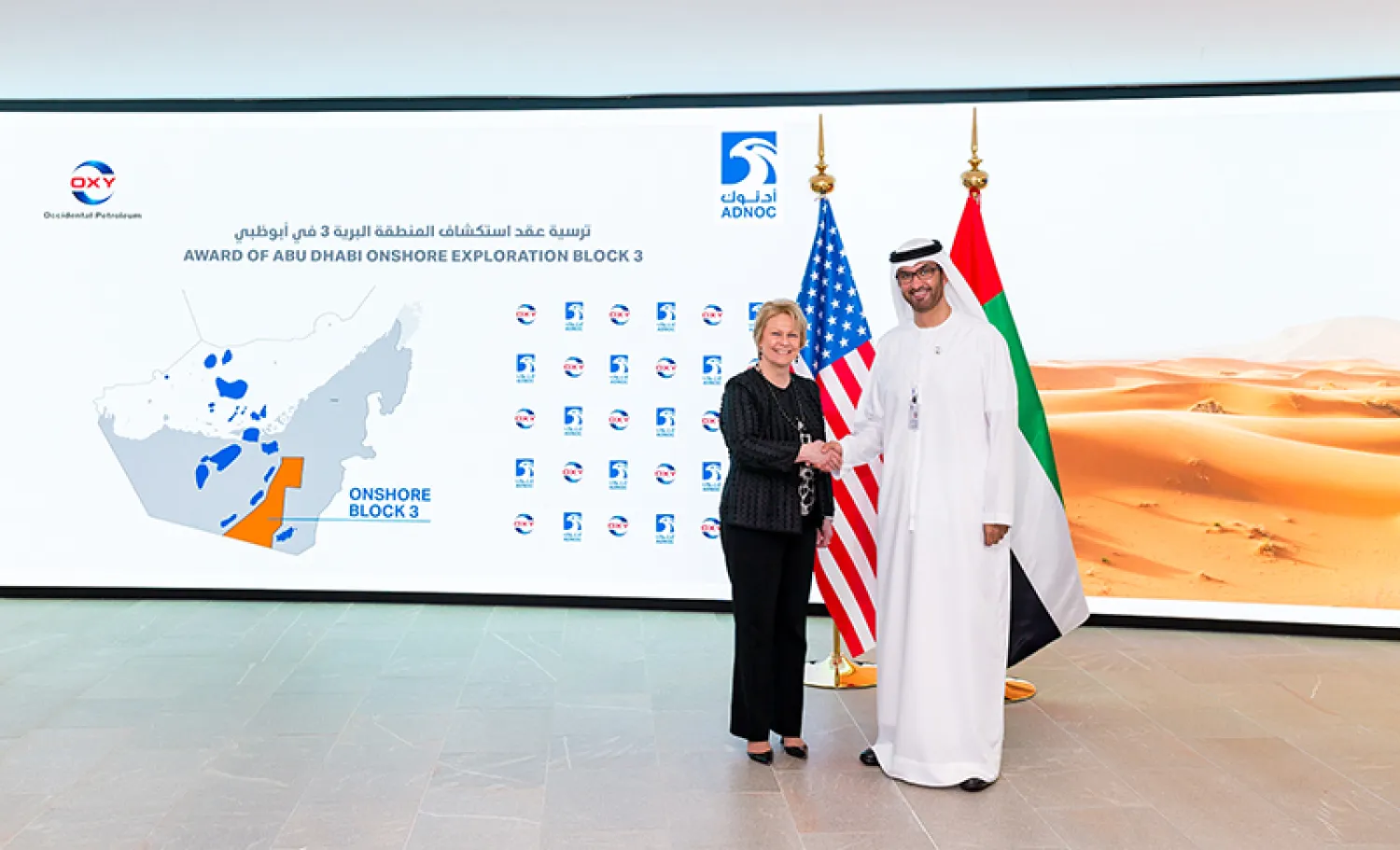The Abu Dhabi National Oil Company (ADNOC) announced the signing of an agreement with Occidental Petroleum which will look for oil and gas in the onshore block – known as Onshore Block 3.
Onshore Block 3 covers an area of 5,782 km2 located in the Al Dhafra region. Existing 3D seismic data already covers a large part of the Block which, combined with its proximity to the Shah, Asab, Haliba and Sahl fields, suggests the concession area has very promising potential.
The Block is the first onshore block to be awarded among the geographical areas that were offered for commercial bidding by ADNOC in April 2018.
The new block licensing strategy represents a major advance in how the Emirate accelerates the exploration and development of untapped resources to replenish its rich reserves base and drives new commercial opportunities.
Based on the agreement, Occidental will hold a 100 percent stake in the exploration phase, investing $244 million, including a participation fee, to explore for oil and gas in Onshore Block 3.
Upon successful exploration, and having established the commercial feasibility of the discovered resources, Occidental will be granted the opportunity to develop and produce any discovery.
ADNOC has the option to hold a 60 percent stake in the production phase of the concession.
Speaking at the signing ceremony, UAE Minister of State and ADNOC Group CEO, Sultan al-Jaber indicated that the concession demonstrates how ADNOC is accelerating the exploration and development of Abu Dhabi’s vast untapped hydrocarbon resources.
“It will help ADNOC to unlock value and stay ahead of the long-term increase in demand for energy and oil and gas products, while further strengthening Abu Dhabi’s position as an essential energy provider to the world. The award also signals our continued and increasing collaboration with US companies.”
Also at the ceremony, President and CEO, Occidental Petroleum, Vicki Hollub, announced: “We are honored to partner with ADNOC to unlock Abu Dhabi’s vast untapped resources as part of its smart growth strategy. We have had a successful partnership with ADNOC developing the Shah Gas Field and look forward to continuing to work together on projects of strategic importance.”
The exploration phase will see Occidental financial and technical contribution to, ADNOC’s mega seismic survey, announced last year. The survey is deploying industry-leading technologies to capture high-resolution 3D images of the complex geology up to 25,000 feet below the surface and will be used to identify potential hydrocarbon reservoirs.
UAE is the world’s seventh-largest oil producer, with about 96 percent of its reserves within the emirate of Abu Dhabi, and there are various undiscovered and undeveloped potential in the numerous stacked reservoirs in one of the world’s largest hydrocarbon super-basins.
Based on existing data from detailed petroleum system studies, seismic surveys, log files and core samples from hundreds of appraisal wells, estimates suggest these new blocks hold multiple billion barrels of oil and multiple trillion cubic feet of natural gas.
Some of the blocks already have discoveries, with 310 targeted reservoirs from 110 prospects and leads. In addition to the country’s conventional oil and gas accumulations, some of the offered blocks also contain significant unconventional resource potential.










